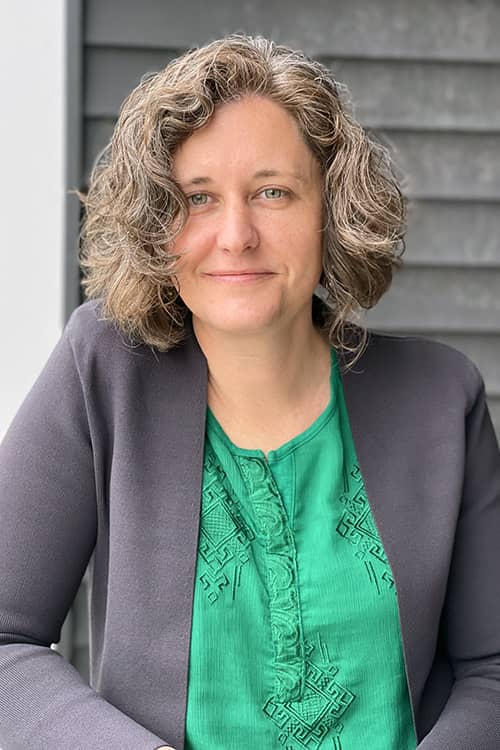
Lindsay Jarratt, Ph.D. student, Educational Policy & Leadership Studies
Illuminates refugee experiences
“Lindsay’s sociolinguistic methods are the most enhanced I have seen among my colleagues; she thinks about methods more deeply than most people who teach methods. For her dissertation, she has spent countless hours transcribing videos, creating analytic coding frameworks to analyze a host of media sources. Beyond her dissertation, Lindsay has been invited to give numerous methods talks helping others learn how to do rigorous, trustworthy research, and she has co-taught qualitative methods courses from basic qual to critical discourse analysis. My own research is stronger because of Lindsay’s methodological contributions.” – Jodi L. Linley, Associate Professor, Educational Policy & Leadership Studies
• Hometown: Strongsville, Ohio
• Faculty mentor/advisor: Professor Jodi L. Linley and Brian An, Associate Professor, Educational Policy & Leadership Studies
• What is your degree program and expected graduate date? I’m a candidate in the Interdisciplinary Schools, Culture, & Society program; I expect to defend my dissertation and graduate with a PhD in Educational Policy & Leadership Studies in 2022.
• Please describe your research: I am exploring the ways refugees are represented in educational discourse. Using evidence from lesson plans about refugees, interviews with educators about their beliefs, and online videos that teach about refugees, I examine how we talk about and position refugees within U.S. ideologies of citizenship, race, learning, and social worth.
• In simple terms, why does this research matter? Schools and sites of learning are powerful institutions that are used to communicate the dominant culture and values of a society. They often work to reproduce and maintain inequities, but they also offer the possibility of transformation. By working to understand the messages communicated about society and the people who live in it, we can work to tip the scales toward justice and equity.
• How soon after starting at the University of Iowa were you able to participate in research? Almost immediately! The Department of Educational Policy & Leadership Studies has a strong, collaborative research community, and there have been innumerable opportunities to get involved in ongoing projects, try out new methods, and take lead on my own analyses, especially as a member of the Center for Research on Undergraduate Education (CRUE). I have also benefited from interdisciplinary efforts like the Immigrant & Refugee Health & Wellbeing Research Group, the Obermann Center for Advanced Studies, and collaborations with researchers in the Department of Sociology and Criminology, each of which have expanded the scope of my understanding and approaches to inquiry. I honestly cannot imagine getting this kind of experience anywhere else.
• How has being involved in research made you more successful at the University of Iowa? Most fundamentally, I think it has changed the ways I think about and engage with learning and knowledge as communal and dynamic processes. Perhaps I’m less anchored in a firm sense of “the answers,” but I’ve been liberated by the possibilities that our questions open up, and the ways we can only move toward answers in collaboration with others. So many brilliant people have helped me to gain skills and nurtured both my patience and creativity. If I’m successful, it’s because of the talented and generous community who supported me here.
• What are your career goals and/or plans after graduation? I hope to find a faculty position where I can continue my research, as well as teaching and mentoring students about research processes.
Banner location: Downtown—Washington Street
